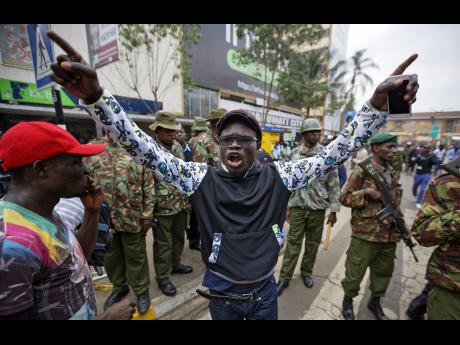Kenyan court throws out president's win, calls for new vote
NAIROBI, Kenya (AP):
President Uhuru Kenyatta's re-election victory last month was thrown out yesterday by Kenya's Supreme Court, which ordered new voting within 60 days in a stunning decision that plunged the East African country back into political chaos.
The move to nullify an election was unprecedented on the African continent.
It gave new hope to opposition candidate Raila Odinga, who had alleged the electronic results of the August 8 balloting were manipulated. He had lost by about 1.4 million votes out of roughly 15 million cast.
The court ruled 4-2 in Odinga's favour, saying the electoral commission committed "illegalities and irregularities". The court, whose full decision with details of its findings is expected to be released within 21 days, did not blame Kenyatta or his party.
Respected ruling
Kenyatta said that while he respected the ruling, he "personally disagrees" with it. He urged calm in a country that has a history of post-election violence.
"Six people have decided they will go against the will of the people," the president said, later telling his supporters that Chief Justice David Maraga "and his crooks" had taken away his victory. The official results had given Kenyatta 54 per cent of the vote to Odinga's 44 per cent.
Opposition members danced in the streets, marvelling at the setback for Kenyatta, the 55-year-old son of the country's first president, in the long rivalry between the country's top political families.
"It's a very historic day for the people of Kenya and by extension the people of Africa," Odinga said. "For the first time in the history of African democratisation, a ruling has been made by a court nullifying irregular election of a president. This is a precedent-setting ruling."
No African country has annulled a national election due to irregularities, Ronald Slye, a law professor at Seattle University, told The Associated Press. Slye was among those who participated in Kenya's Truth, Justice and Reconciliation Commission set up after violence killed more than 1,000 people following the 2007 election.
The international observers, including former Secretary of State John Kerry, had said on election day that they had seen no interference with the vote. The Carter Center said yesterday that Kerry's mission had noted that "the electronic transmission of results proved unreliable".

